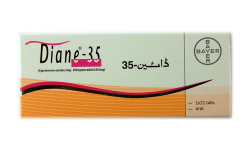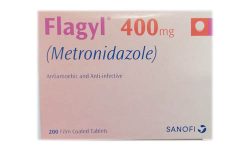Androcur Tablets by Bayer
Looking for a trusted hormonal therapy to manage androgen-related conditions? Androcur Tablets by Bayer, available at Irfan Traders, are a clinically proven anti-androgen medication designed to treat conditions like prostate cancer, severe acne, hirsutism (excess hair growth), and hormone-related disorders. As a leading pharmaceutical exporter in Pakistan, we supply authentic Bayer products with competitive pricing and global shipping.
Description
Androcur Tablets by Bayer | Irfan Traders – Leading Pharmaceutical Exporters in Pakistan
What Are Androcur Tablets?
Androcur Tablets contain Cyproterone Acetate, a potent anti-androgen that works by blocking male hormones (androgens) from stimulating the growth of cancerous cells and reducing testosterone effects in both men and women.
📌 Learn more about Cyproterone Acetate at Drugs.com (nofollow outbound link).
Uses of Androcur Tablets by Bayer
✔ Prostate Cancer Treatment – Used to slow down cancer cell growth in hormone-dependent prostate cancer.
✔ Severe Acne Treatment – Helps reduce hormonal acne and excessive oil production.
✔ Hirsutism (Excess Hair Growth) in Women – Blocks male hormones responsible for unwanted facial and body hair.
✔ Hormone Therapy for Transgender Women – Often prescribed in gender-affirming therapy to reduce testosterone levels.
✔ Hypersexuality Management in Men – Controls excessive sexual drive and compulsive behaviors.
📌 For more information on hormonal therapy, visit Mayo Clinic (nofollow outbound link).
Active Ingredients in Androcur Tablets by Bayer
✔ Cyproterone Acetate (50mg/100mg) – A synthetic anti-androgen that blocks testosterone effects.
✔ Lactose Monohydrate – Used for tablet stability and smooth digestion.
✔ Magnesium Stearate – Enhances tablet consistency.
✔ Microcrystalline Cellulose – Improves tablet texture for better absorption.
📌 Learn more about Cyproterone at PubMed (nofollow outbound link).
Why Choose Androcur Tablets by Bayer?
✔ Clinically Proven Anti-Androgen – Trusted by doctors for treating hormone-related disorders.
✔ Effective for Prostate Cancer Therapy – Helps slow tumor progression.
✔ Regulates Hormonal Imbalances – Reduces testosterone-related side effects in men and women.
✔ Trusted by Dermatologists for Acne & Hirsutism – Safe for long-term use under medical supervision.
✔ Recommended in Gender Transition Therapy – Used to lower testosterone levels in transgender women.
📌 For prostate cancer treatment guidelines, visit WHO (nofollow outbound link).
How to Use Androcur Tablets?
💊 Dosage Instructions:
🔹 For Prostate Cancer: Usually 100mg–300mg daily, as prescribed by a doctor.
🔹 For Severe Acne & Hirsutism: 50mg daily or as directed by a dermatologist.
🔹 For Hypersexuality in Men: 50mg–100mg per day, under medical supervision.
🔹 For Hormone Therapy in Transgender Women: 25mg–50mg per day, based on hormonal needs.
📌 Always follow your doctor’s instructions for the best results.
Precautions & Side Effects
Precautions:
❗ Not suitable for individuals with liver disease or a history of blood clots.
❗ May interact with hormone-based medications like birth control pills.
❗ Should not be used by pregnant or breastfeeding women.
❗ Requires regular liver function tests for long-term use.
📌 Check for drug interactions at MedlinePlus (nofollow outbound link).
Common Side Effects:
⚠ Fatigue or weakness.
⚠ Weight gain or water retention.
⚠ Nausea or upset stomach.
⚠ Decreased libido or erectile dysfunction in men.
Serious Side Effects (Seek Immediate Medical Help):
⚠ Jaundice (yellowing of skin or eyes).
⚠ Severe depression or mood changes.
⚠ Blood clot symptoms (swelling, pain, or difficulty breathing).
📌 Report serious side effects to FDA MedWatch (nofollow outbound link).
Why Buy Androcur Tablets from Irfan Traders?
At Irfan Traders, we ensure:
✅ 100% Authentic Bayer Products – Directly sourced from licensed manufacturers.
✅ Competitive Wholesale Pricing – Best rates for hospitals, clinics, and distributors.
✅ Fast & Reliable Global Shipping – Secure delivery worldwide.
✅ Regulatory Compliance – Adheres to WHO & GMP standards.
✅ Dedicated Customer Support – Assistance with orders and inquiries.
📩 Looking for bulk supply? Contact us today!
Bulk Orders for Androcur Tablets
📦 Are you a distributor or healthcare provider looking for bulk supply?
✔ Special discounts for wholesale buyers.
✔ Flexible order quantities to meet your needs.
✔ Secure packaging for product integrity.
📌 Order now from Irfan Traders.
Order Androcur Tablets by Bayer Today!
At Irfan Traders, we provide fast, secure, and affordable access to Androcur Tablets by Bayer.
📩 Contact us today for wholesale pricing and international shipping! 🚀






Wodór molekularny –
Your posts are always so well-researched. I learn something new every time!
Irfan-traders –
Thank-you, that’s what we’re here for!